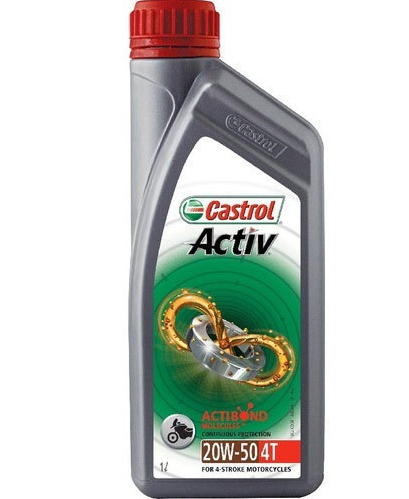Mixing different types of engine oil is not recommended. Doing so may lead to reduced oil performance and potential engine damage.
Mixing engine oil types, such as synthetic with conventional, or oils with different viscosities, can dilute the purity and properties of the oil, compromising its performance and the engine’s protection. Manufacturers formulate engine oils to work at optimal levels, based on specific characteristics that can be undermined when mixed.
Car owners seeking top engine performance and longevity should stick to the oil type specified by their vehicle’s manufacturer. Using the wrong oil blend can also affect warranties and lead to costly repairs. Before considering mixing oils, always consult your vehicle’s manual or a professional mechanic to prevent any adverse effects on your engine’s health.

Credit: www.energizedcustoms.co.uk
Considering Oil Mixtures
Considering Oil Mixtures prompts a common question among vehicle owners: Can you blend engine oil types? This inquiry deserves a detailed exploration to guide you in maintaining your vehicle’s performance and longevity.
Potential Risks
Mixing different oils is not without its dangers. The potential risks include:
- Viscosity issues: Different oils may have incompatible thickness levels, undermining engine protection.
- Chemical reactions: Oils with differing additives could react, leading to decreased effectiveness.
- Clashing specifications: Oils designed for specific engine types might not mix well, causing performance problems.
Be sure to weigh these risks against the immediate needs of your vehicle.
What Experts Say
Consulting with professionals provides insights into mixing engine oil types. Experts generally advocate for:
- Sticking to the manufacturer’s guidelines on oil use.
- Using the same type of oil for top-offs whenever possible.
- Seeking professional advice before combining different oils.
Leverage expert knowledge to maximize engine health and avoid costly repairs.
Basics Of Engine Oil
Motor oils are crucial for vehicle health. They lubricate engine parts. This reduces friction. Heat is dissipated. It keeps engines cool. Oils also clean and prevent rust. Over time, oil degrades. It needs replacing. Knowing about different oils is essential. This helps with proper maintenance.
Viscosity Grades
Viscosity refers to an oil’s thickness. It’s a key property. The Society of Automotive Engineers (SAE) grades it. Grades are numbers like 5W-30, 10W-40. The “W” stands for winter. The first number is cold-weather rating. It tells how oil flows at low temperatures. The second number tells how oil flows at high temperatures. Oils with different viscosities have different performances. Choose the right grade for your vehicle. It protects your engine.
Synthetic Vs. Conventional
Synthetic oils are man-made. They perform better than conventional oils. Synthetics work well in extreme temperatures. They flow better when cold. They don’t break down quickly when hot. Conventional oils, on the other hand, are petroleum-based. They are cheaper. Yet, they may not protect as well as synthetics. Some engines require synthetic oil. Others can use either type. Check your owner’s manual.
Why Engines Need Proper Oil
Think of oil as the lifeblood of your engine. With the right oil, your engine works smoothly. But mix different types or use the wrong one, and you could have trouble. The engine needs the correct oil to stay healthy.
Lubrication Essentials
Oil cuts down on friction between moving parts. Every engine part moves with ease when the right oil flows through.
It means less wear and less heat inside the engine. The right oil keeps parts from scraping against each other. No right oil equals big problems.
Impact On Engine Lifespan
The wrong oil can lead to a shorter engine life. Good oil equals a long-lived engine. It fights rust and removes dirt. All these help your engine stay young.
Below is a list of problems with the wrong oil:
- More friction – parts wear out faster.
- Overheating – without good oil, the engine gets too hot.
- Buildup of dirt and grime – right oil cleans while protecting.
- Higher chance of engine failure.
Credit: www.quora.com
Common Misconceptions
The world of engine oils can be slippery, with many drivers holding onto outdated beliefs. Confusion looms large around the subject of mixing different engine oil types. Let’s dispel some myths and clarify what’s fact and what’s fiction when combining engine oils.
Additive Compatibility
Mixing oils from different brands or types often raises concerns about additive compatibility. Additives in oil work to enhance performance, reduce friction, and prevent corrosion. But not all additives play nice together.
Imagine pouring sports drinks into one bottle; some ingredients might not mingle well. Similarly, engine oil additives have unique properties and mixing them can sometimes neutralize their beneficial effects or even create harmful chemical reactions.
- Synthetic oil with conventional can dilute the performance benefits.
- Mixed oils can lead to deposits and sludge in the engine.
- Check compatibility before topping off with a different type of oil.
Engine Oil Myths
Many drivers believe that all oils are the same, but this isn’t true. Each oil type has a specific blend designed for certain engine types. Here are some common myths:
| Myth | Fact |
|---|---|
| Synthetics damage seals | Modern synthetics are safe for seals and often enhance protection. |
| Switching types will harm your engine | If done correctly, switching can benefit engine health. |
| Mixing brands causes engine problems | While not ideal, emergency mixing of the same oil type and grade is usually safe. |
It’s vital to choose the right oil for your engine’s needs. While some interchangeability exists, it’s best to use the oil recommended by your vehicle’s manufacturer. This ensures that your engine runs smoothly and maintains its longevity.
Mixing Synthetic And Conventional
Curiosity surrounds the topic of mixing synthetic and conventional engine oils.
Many ponder whether combining different oil types is safe for their vehicles. The truth reveals interesting facts.
Implications For Performance
Performance implications arise when mixing oils. These are essential to understand:
- Viscosity: The oil’s ability to flow can change.
- Oil breakdown: Different oils may degrade at varied rates.
- Protection: Mixed oils could alter the protection your engine receives.
Research shows mixed oils can work, but consistency remains key.
Manufacturer Recommendations
Vehicle manufacturers often provide specific recommendations for engine oils.
| Manufacturer | Recommended Oil Type |
|---|---|
| Toyota | Synthetic |
| Ford | Conventional |
| Honda | Either, based on model |
Always consult your owner’s manual or dealer for the best advice.
The Case Of Emergencies
The Case of Emergencies can present a unique challenge. Your vehicle needs an oil top-up, but the exact engine oil isn’t available. What should you do?
Temporary Solutions
It’s critical to keep your engine adequately lubricated. In an emergency, combining different oil types could be a temporary fix. Here’s what to consider:
- Viscosity: Ensure the emergency oil is a similar viscosity.
- Specifications: Check if the oil meets your engine’s specifications.
- Quantity: Only add enough to reach a safe level on the dipstick.
- Brand: Brand differences are less critical than oil specifications.
Aim for a quick oil change as soon as possible.
Long-term Consequences
Mixing oil types is not recommended for long-term use. Here’s why:
- Deterioration of Oil: Different additives may conflict, reducing effectiveness.
- Engine Damage: Inconsistent oil properties can lead to wear and tear.
- Void Warranty: Manufacturers may not cover damage due to mixed oils.
Always prioritize matching oil for the health of your vehicle’s engine.
Effects On Engine Warranty
The Effects on Engine Warranty can raise brows for car owners contemplating an oil mix. Manufacturers set specific guidelines for engine care. Deviating can lead to dire consequences. Understanding warranty terms is crucial to avoiding unintentional breaches of your engine’s warranty. Let us dive into the intricacies of engine oil mixing and its impact on your warranty validity.
Warranty Validity
Warranty validity is a key consideration for engine maintenance. The fine print in your vehicle’s warranty booklet often specifies the type and quality of engine oil to use. Let’s explore this further:
- Manufacturer specifications: Adhering to precise oil requirements spelled out by the car manufacturer is essential.
- Impact of mixing oils: Combining different oils may alter oil viscosity and performance, potentially voiding the warranty.
- Consult your dealer: When in doubt, always check with authorized dealers for advice.
Maintaining warranty protection safeguards your investment in the vehicle. It ensures that you get the most out of your engine without risking unnecessary expenses.
Service Records And Proof
Keeping thorough service records is vital. These help establish that you’ve cared for your engine correctly:
- Save all service receipts.
- Document oil changes and maintenance work.
- Maintain a logbook of services performed.
Complete service records provide proof of maintenance. In the event of a warranty claim, this proof is indispensable. Without it, your warranty could be in jeopardy. Never underestimate the power of good record-keeping. It could save you time and money down the line.

Credit: m.youtube.com
Best Practices In Engine Maintenance
Keeping an engine in top condition requires diligence and understanding, particularly when it involves oil. Mixing engine oil types may not be ideal, but sometimes necessary. Let’s look at some key practices to keep your engine humming smoothly.
Regular Oil Changes
Changing engine oil at regular intervals is crucial. It prevents buildup and ensures optimal performance. Here’s a simple guide to follow:
- Check the manufacturer’s guide for specific oil change timelines.
- Use the recommended oil type to avoid potential damage.
- Monitor oil levels regularly between changes.
Sticking to a schedule helps in extending the life of your engine.
Consulting With Professionals
When in doubt, seek professional advice. They deliver reliable recommendations for your engine’s needs. Here are reasons to consult with experts:
| Why Consult | Benefits |
|---|---|
| Expert Knowledge | Professionals understand complex engine requirements. |
| Correct Oil Choice | They help select the best oil for performance and longevity. |
| Problem Diagnosis | Early identification of issues prevents bigger problems. |
Taking your engine to a certified mechanic ensures it gets the care it needs.
Frequently Asked Questions For Can You Mix Engine Oil Types?
What Happens If You Mix Engine Oil Types?
Mixing different types of engine oil can lead to reduced lubrication performance and potential engine damage. Compatibility issues may cause sludge buildup and decrease oil’s efficacy. Always consult your vehicle’s manual before mixing oils.
Can I Mix 10w30 With 5w30?
Yes, you can mix 10W30 with 5W30 engine oil if necessary. Ensure both oils meet your vehicle manufacturer’s specifications. Mixing should be a temporary measure, not a regular practice. Regular oil changes with the correct viscosity are crucial. Read More
Can I Mix 10w 40 With 5w-30?
Yes, you can mix 10W-40 with 5W-30 oil if necessary. Ensure the oils are of the same brand and specification for the best compatibility. Regularly check your engine’s performance after mixing. Read More
Can You Mix 2 Different Brands Of Engine Oil?
Yes, you can mix two different brands of engine oil if they have the same viscosity and meet the engine’s specifications. Always ensure they are compatible to avoid any potential issues.
Read More: Can You Mix 5w30 and 5w40?
Conclusion
Mixing engine oil types isn’t a one-size-fits-all answer. Consider manufacturer guidelines and oil properties first. If in doubt, asking a mechanic or sticking to one kind is safer. Remember, the right oil keeps your engine performing optimally. Keep your ride smooth and your mind at ease by choosing wisely.


